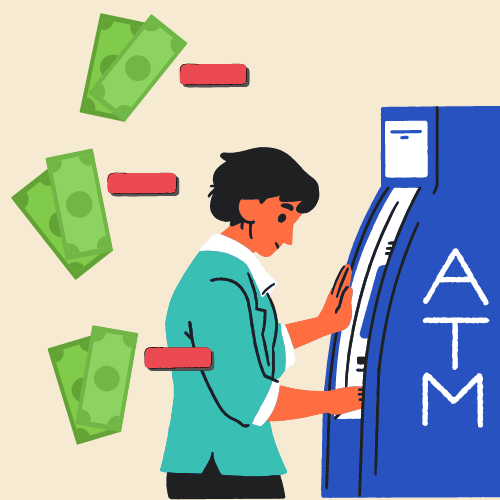Financial systems continue to favor the wealthy

As the world slowly evolves into becoming completely cashless, banking systems are an especially important factor to a sustainable life. In situations where money does not flow in through masses, people struggle to even afford basic necessities. This includes, but is not limited to, shelter, transportation, food and clothing. Those who fall into these unfortunate circumstances often struggle to dig a way out of it, for banking systems work with injustice to the financially struggling.
From the past year alone, consumer prices rose up to an average of 9.1 percent across the country. Meanwhile, the minimum wage across America has remained at only $7.25 since 2009. In most careers, salary increases around 2% yearly. But even then, that is not an ample amount with consumer prices surging so rapidly. Also considering that between 10% to 37%, depending on the salary, of annual income becomes a tax burden to all individuals. This could be horribly harmful to people. If, for instance, someone only makes the minimum wage hourly with a 40 hour work week and no dependents, they would only be bringing home approximately $1,150.00 per month. This is equivalent to barely $13,000 annually.
Drawing back to the fact that consumer prices went up to 9%, and considering that the average monthly rent in Pennsylvania is $1,117 and average monthly mortgage is $1,071, there is no “wiggle room” for people who make the minimum wage. The money remaining can not even cover electric, gas, heating, grocery or other expenses. On top of not having sufficient finances as-is, banks typically charge a maintenance fee once an account dips below a certain amount. This requires someone who already does not have enough money to pay for not having enough money.
As partially stated already, according to an economic review from Berkeley University, most well-known banks cater their benefits to the rich without keeping low and middle class situations in mind. They implement systems like overdraft fees, withdrawal fees, purchase fees and other charges, which keep a poor individual in a stalemate – or, most times, a regressive position. More widely tolerable banking rules, such as interest rates, are also detrimental to those who are incapable of supplying the satisfactory finances to pay off these debts. Overall, these processes can drive someone deeper into financial stress
World-wide, banking is deemed as the reasonable option to manage finances. To an extent, this is true. Not only have bank accounts become so easily accessible, but they make it possible to make purchases at convenient times. People crave this kind of simplicity in life, especially with how stressful it can be outside of the financial scope. Paying with cash has become less common and less necessary in a majority of situations, which has become acceptable globally.
But with how drastically our world is shifting to a cashless reality, banking systems need to update with the trends. It is vital for these outdated systems to begin considering the majority; the working class. Catering benefits to the rich all while charging money to the poor will only drag the general economy down a slope. Changes to modern banking are absolutely necessary, and they need to be made soon on behalf of the people.


